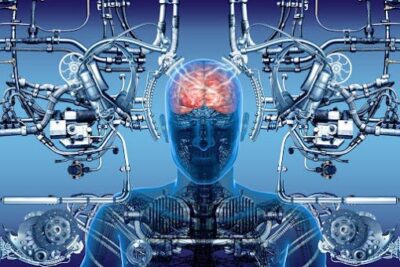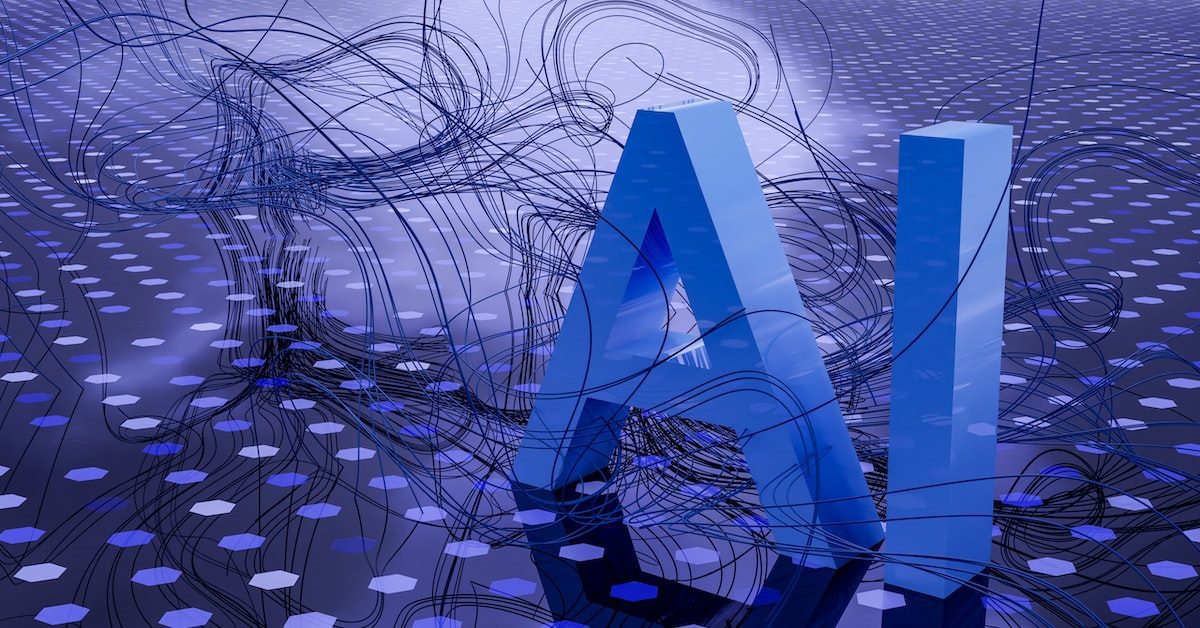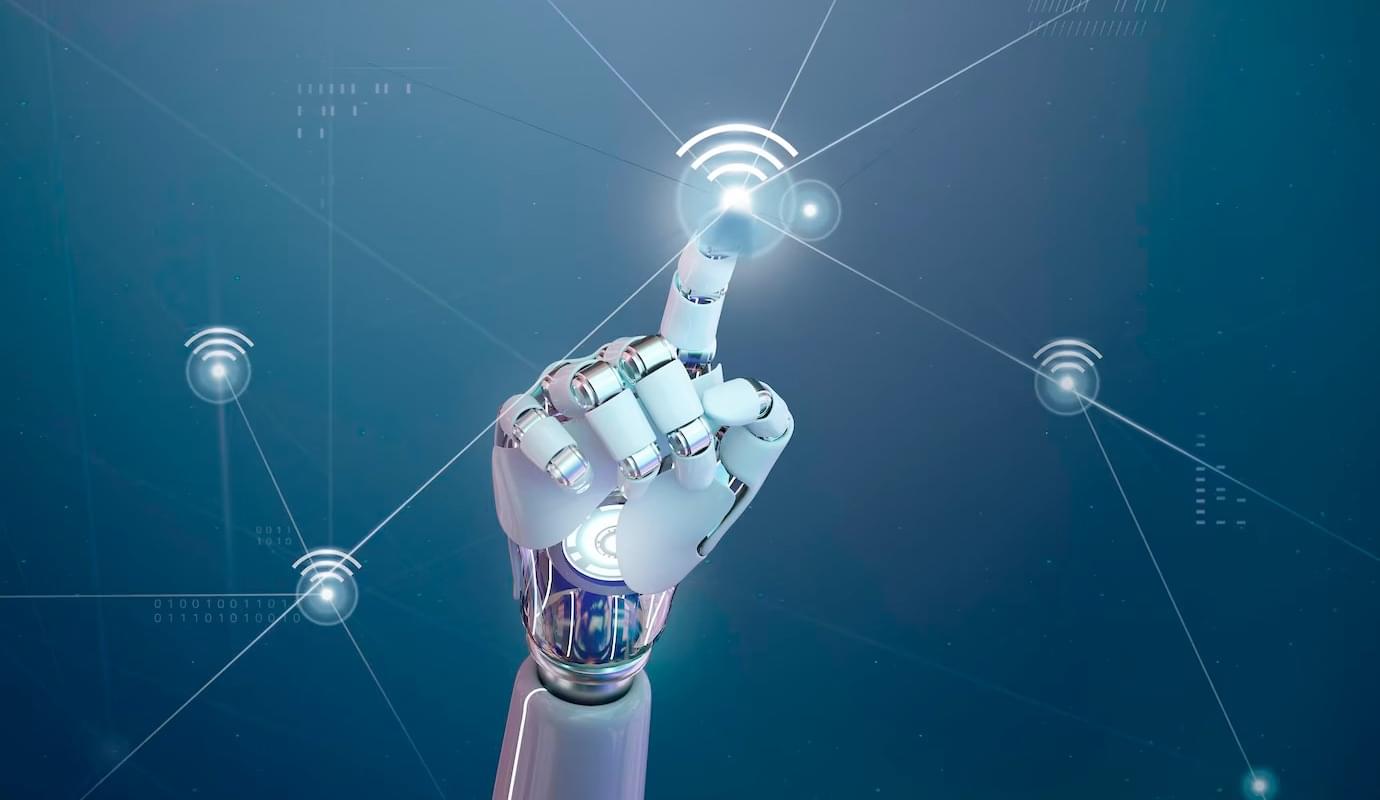In this article, we will explore...
Read More
The Rise of ChatGPT: Is Artificial Intelligence Replacing Human Workers in Businesses?
Written by Digital Media Zone
Introduction
In today’s rapidly evolving business landscape, the prominence of artificial intelligence (AI) technologies is undeniable. Among the emerging AI tools, ChatGPT has garnered much attention and is now raising questions about the possible replacement of human workers.
This blog post aims to delve into the growing significance of ChatGPT and other AI technologies and explore whether they are poised to replace human workers in businesses.
Join us as we dive into the advantages, challenges, and ethical considerations surrounding this transformative shift in the workforce.
Together, we will examine the rise of AI and its potential implications for businesses and employment.
Welcome to "The Rise of ChatGPT: Is Artificial Intelligence Replacing Human Workers in Businesses?"

Understanding ChatGPT and its Capabilities
What is ChatGPT?
ChatGPT is a state-of-the-art language model trained to generate human-like responses in a conversational manner. It employs a deep learning technique called Transformer, enabling it to understand and generate text based on context. With its vast amount of pre-trained data, ChatGPT can mimic human conversation and provide informative and helpful responses.
– Artificial Intelligence (AI) has indeed seen a rise in its role within businesses, particularly with the introduction of ChatGPT.
– ChatGPT, powered by OpenAI, is an advanced language model that can understand and generate human-like text responses.
– While AI like ChatGPT is becoming more prevalent, it is important to note that it is not meant to replace human workers entirely, but rather to augment their capabilities and enhance efficiency.
Language Understanding and Generation
ChatGPT’s ability to understand and generate language is its most significant strength. It can comprehend user queries and provide relevant and coherent responses, making it a valuable tool for customer support, virtual assistants, and other applications requiring human-like interaction.
– ChatGPT’s language understanding and generation capabilities have significantly improved over time.
– It can comprehend and generate text in a manner that closely resembles human conversation, providing a more natural and engaging experience.
– Through its ability to understand context and generate coherent responses, ChatGPT can handle a wide range of customer queries and reduce the need for human intervention.
The Impact of ChatGPT on Business AI Workforce
Improving Efficiency and Productivity
By automating repetitive and mundane tasks, ChatGPT can enhance business efficiency and productivity. For instance, it can handle routine customer inquiries, freeing up human employees to focus on more complex and strategic tasks. This allows businesses to operate more efficiently and allocate their human resources more effectively.
– ChatGPT is revolutionizing the way businesses operate by improving efficiency and productivity levels.
– By automating repetitive tasks ChatGPT allows employees to focus on high-value activities that drive growth.
– The AI technology behind ChatGPT enables faster and more accurate responses to customer inquiries, reducing response times and increasing efficiency.
Reduction
Integrating ChatGPT into business operations can lead to significant cost reductions. While initial implementation costs may be high, the long-term benefits outweigh the investment. AI-powered chatbots can handle a large volume of customer inquiries simultaneously, reducing the need for a large customer support team.
This ultimately leads to reduced labour costs.

Enhanced Customer Experience
ChatGPT’s ability to provide instant and accurate responses to customer queries improves overall customer experience. With its 24/7 availability, businesses can ensure prompt and consistent customer support, leading to higher customer satisfaction and retention rates. Moreover, ChatGPT’s ability to learn from interactions enables it to continuously improve its responses, further enhancing the customer experience.
– Implementing ChatGPT:
Enhances customer experience by providing instant and personalized responses to customer queries.
– ChatGPT’s AI capabilities:
Enabling it to understand and respond to customer needs, resulting in a more satisfying interaction.
– Customers receive 24/7 support:
ChatGPT is more than capable of handling a high volume of inquiries simultaneously without fatigue.
Mastering this AI app will take Any Business to the Next Level.

The Role of Persuasive Sales Copy
Artificial Intelligence in Businesses: Finding the Right Balance
Augmenting Human Workers
Rather than replacing human workers, AI technologies like ChatGPT can augment their capabilities. By automating repetitive tasks, AI allows employees to focus on complex problem-solving, creativity, and critical thinking. Human workers can leverage AI tools to enhance their productivity and decision-making, leading to better outcomes for businesses.
The Human Touch
While AI can provide efficient and accurate responses, it may lack the empathy and emotional intelligence that human workers possess. Certain customer interactions require compassion, understanding, and the ability to navigate complex emotions. Businesses must strike a balance between AI and human employees to ensure optimal customer service and satisfaction.
Human vs. AI Employees: The Way Forward
Skill Adaptation and Training
Navigating the Future of Work Skill Adaptation and Training As AI technology continues to advance, it’s crucial for businesses to invest in upskilling and reskilling their workforce. By providing training that enables employees to collaborate effectively with AI tools, we can harness the strengths of both humans and AI while minimizing job displacement.
Prioritizing responsible AI development and deployment fosters trust among customers and employees alike. Conclusion The advent of ChatGPT and other AI technologies brings undeniable benefits to businesses. By automating mundane tasks, improving efficiency, and enhancing customer experiences, AI has the potential to revolutionize how organizations operate.
The Right Balance
However, it’s crucial to remember that AI is not a replacement for human workers, but a tool that enhances their capabilities. Achieving the right balance between AI and human employees is key to achieving optimal outcomes and addressing ethical concerns.
By implementing AI technologies carefully and continuously developing the skills of our workforce, businesses can thrive in an ever-evolving landscape while prioritizing the well-being of their employees.

Ethical Considerations
The rise of AI in businesses raises ethical concerns that must be addressed. Ensuring transparency, accountability, and fairness in AI algorithms is essential to prevent biases and discrimination. Businesses must prioritize responsible AI development and deployment to foster trust among customers and employees.
1. Privacy and Data Protection:
– AI systems often rely on large amounts of data to function effectively. Ensuring that this data is collected and used in a responsible and ethical manner is of utmost importance.
– Companies and organizations must have robust data protection policies in place to protect user privacy and prevent unauthorized access or misuse of personal information.
2. Bias and Fairness:
– AI systems are only as unbiased as the data they are trained on. If the data used to train an AI system is biased, it can result in discriminatory outcomes.
– Efforts must be made to mitigate and address bias in AI algorithms to ensure fair and unbiased decision-making processes.
3. Transparency and Explainability:
– AI algorithms can be complex and difficult to understand, making it challenging to interpret their decisions or actions.
– There is a need for transparency and explainability in AI systems to ensure that individuals can understand why a certain decision was made and have the opportunity to question or challenge it if needed.
4. Accountability and Liability:
– As AI systems become more autonomous, questions arise about who should be held accountable for their actions or decisions.
– Clear guidelines and regulations must be established

In conclusion.
The rise of ChatGPT and other AI technologies undoubtedly brings significant benefits to businesses. By automating routine tasks, enhancing efficiency, and improving customer experience, AI can revolutionize how organizations operate.
However, it is crucial to recognize that AI is not a substitute for human workers but a tool to augment their abilities. Striking the right balance between AI and human employees is essential to ensure optimal outcomes and address ethical considerations.
With careful implementation and continuous skill development, businesses can leverage AI technologies to thrive in an ever-evolving landscape while prioritizing the well-being of their workforce. Personally, I don’t think they are here to replace human workers but rather to augment their capabilities.
By leveraging AI tools, businesses can empower their employees to focus on complex problem-solving, creativity, and critical thinking, leading to better outcomes for all.

FAQ 1: What is ChatGPT, and how does it benefit businesses?
Answer: ChatGPT is an advanced AI language model created by OpenAI. It benefits businesses by automating customer support, assisting with content generation, and facilitating various text-based tasks using natural language processing.
FAQ 2: Can AI like ChatGPT completely replace human workers in businesses?
Answer: While AI, including ChatGPT, is becoming more capable, it’s unlikely to entirely replace human workers. Instead, it complements human employees by automating repetitive tasks and boosting productivity, allowing humans to focus on more creative and complex aspects of their roles.
FAQ 3: What advantages does integrating AI like ChatGPT offer businesses?
Answer: Integrating AI, such as ChatGPT, brings increased efficiency, cost reduction, improved customer service, and the ability to process and analyze vast amounts of data quickly. Additionally, ChatGPT can provide 24/7 support and aid in scaling operations.
FAQ 4: Are there any ethical concerns regarding AI replacing human workers in businesses?
Answer: Yes, there are ethical concerns such as job displacement, bias in AI algorithms, and privacy. To address these concerns, businesses must adopt responsible AI practices and ensure a fair and thoughtful transition when incorporating AI technologies into their workforce.
FREE! PDF e-Book

Don't Think About What Might Go Wrong
Think About What Might Go Right!
Crucial Tips & Tricks on How you can Make Money with -
"ChatGPT Expertise"
Available Free for Limited Time Only
We appreciate you taking the time to read our content.
We hope you found it informative and valuable.

Affiliate Disclosure:
This website may contain affiliate links, which means we may earn a commission if you make a purchase through these links. We only recommend products or services that we believe will add value to our readers. The commissions earned through these links help support the content we create and maintain on this website. Please note that this does not affect the price you pay for any products or services purchased through these affiliate links. Your support is greatly appreciated, and we strive to provide honest and unbiased information to assist you in making informed decisions.
Disclaimer:
This content reflects the personal opinions of the author. It is accurate and true to the best of the author’s knowledge and should not be substituted for impartial fact or advice in legal, political, or personal matters. Your journey to affiliate marketing success starts here.
By entering your email, you agree to receive our emails, including marketing emails, in line with our Privacy Policy.








